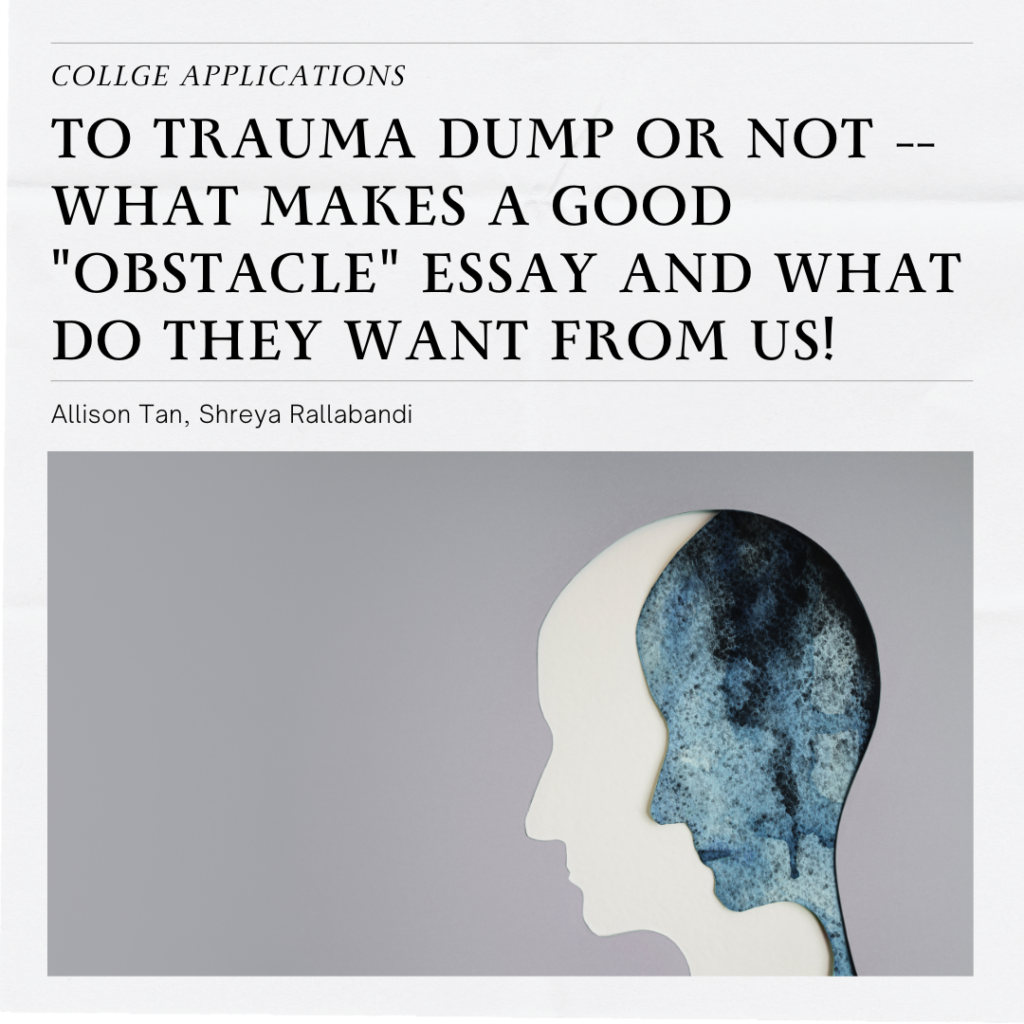Describe the most significant challenge you have faced and the steps you have taken to overcome this challenge. How has this challenge affected your academic achievement?
The ever infamous UC personal insight question. We all want to write a picture-perfect essay that highlights our growth without overplaying the adversity we have faced, but this feat proves near impossible. We’re tired of hearing the standard college counselor advice: “For every one sentence you write about your struggles, you should write three about you overcoming them.”
It feels as if there is a correct way to discuss mental health — using just vague enough language for admissions officers to get an understanding of the issues discussed, but inserting a sickly sweet-happy ending to send colleges the message that we’re now totally fine and capable (so accept us, please!). There’s also an incorrect way: revealing a raw version of ourselves that is deemed as “oversharing” and “not quite hopeful enough.”
As seniors, we must decipher for ourselves how much is too much to share as well as when and how we discuss the trauma that has shaped our lives and character. How do we talk to colleges about overcoming trauma without telling them we are still vulnerable to it? How do we write about our experiences without telling too much? How are we supposed to present our best selves without hiding behind a facade of strength?
Many colleges believe that students who write about depression or suicide may not have the academic rigor or stability it takes to attend an elite school. Does this mean, then, that we must erase parts of ourselves — or lie — to increase our chances of admission?
And even once admitted, those who struggle with mental health are viewed as liabilities, not as students who have tangible conditions. In December, Yale University was sued by students for discriminating against and not accommodating those with mental health issues.
Students cited unfair punishments for mental disabilities, including Yale forcing them to take involuntary leaves of absences, excluding them from campus activities and using police officers as escorts for students who are being reintroduced to campus after a “leave of absence.”
A Yale official described a student who was struggling with self-harm as a “liability” if their symptoms amplified and became problematic. Despite the university’s publicized statement claiming they were being cognizant of their students’ well-being, situations like these have painted an unsafe picture of the school for prospective applicants, who — for every reason aside from mental health support — are vying to attend.
Even once accepted, the way colleges think about mental health still worries students with mental health issues.
College admissions leave us with too many unanswered questions and ambiguity that hinders our application process. We are stuck trying to figure out what quantifies a golden-ticket emotional essay into an Ivy League without appearing as another Bay Area sob story with first-world problems. What do colleges really want to see — an applicant who has successfully faced enough adversity, or an applicant who continues to struggle through it?
Turns out, in some cases, universities won’t even try to look past the mention of mental health struggles on an application. Ex-professor Robert Isaacs at Cornell University writes that it was an “informal policy” for their admissions department to deny acceptance to anyone exhibiting mental health issues without considering the rest of their application, because they might “pose a significant burden” if the level of support they need escalates while on they are on campus.
The UC’s grand obstacle question and others like it pressure high school seniors to craft the perfect moral and happy ending, which many of us do not have. What if you take all the textbook steps to overcome your “most significant challenge” but you are still working to overcome it? How are we to write about overcoming our “most significant challenge” if doing so cannot happen without leaving scars behind — scars that are not safe to write about, and not safe to have?
Dear admissions officers, please put your big boy pants on and write “Obstacle Essay Writing for Dummies,” because pleasing you is like solving an enigma — plus, you’d probably make the New York Times Bestseller list and snatch even more profit from potential students!


























